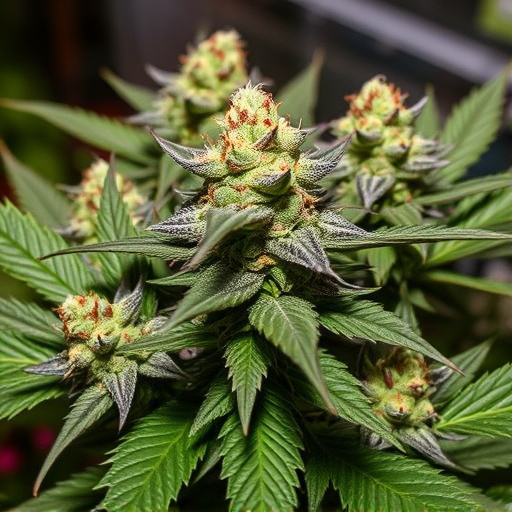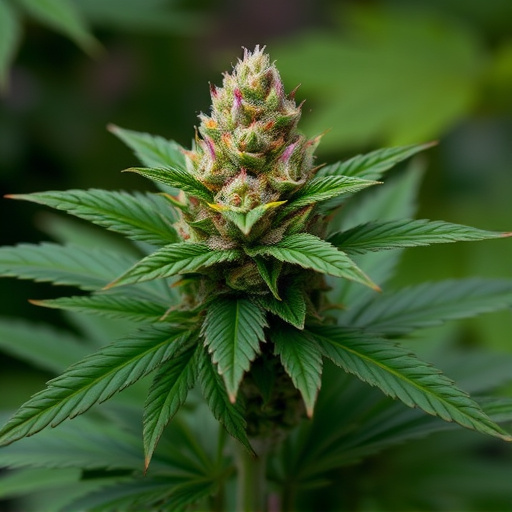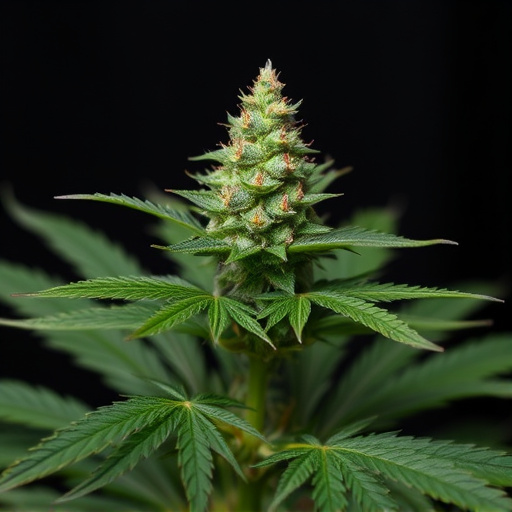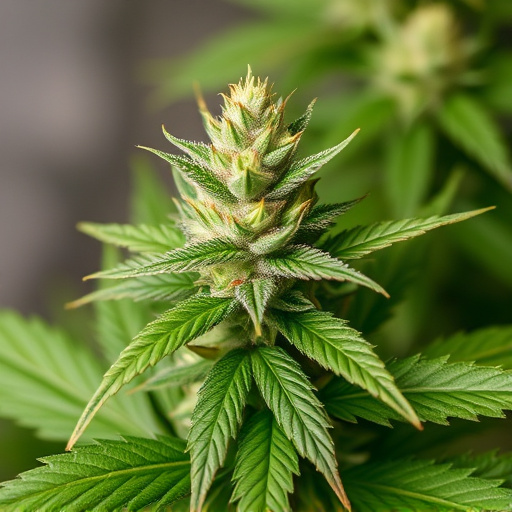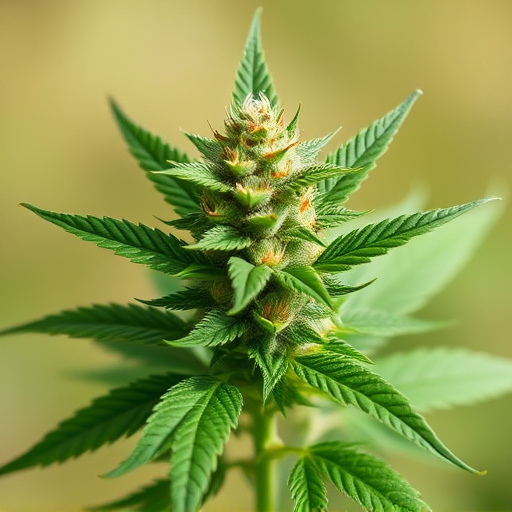Cannabis, with its cannabinoids THC and CBD, interacts with the body's endocannabinoid system (ECS) to regulate appetite. High-THC strains may benefit individuals with ADHD struggling with eating disorders or low appetite by stimulating hunger. Consulting healthcare professionals is essential for personalized guidance on suitable cannabis strains and dosages. Cannabis offers a natural solution for ADHD-related appetite issues, with compounds like THC and CBG influencing brain and gut receptors, and potentially managing ghrelin, a hunger hormone. Exploring specific cannabis strains could provide effective management of ADHD-related hunger.
Cannabis flower’s effect on hunger is a topic of growing interest, especially with its rising legalisation. Understanding why it stimulates appetite can offer insights into conditions like ADHD where appetite regulation is challenging. This article delves into the science behind cannabis’ impact on hunger, focusing on cannabinoids’ role in triggering eating urges. We explore specific cannabis strains known to aid ADHD symptoms, highlighting their potential as natural solutions for managing both attention and appetite.
- Understanding the Cannabinoids and Their Effects on Appetite
- Cannabis Strains for ADHD: A Potential Solution for Appetite Regulation
- The Science Behind Cannabis' Impact on Hunger: Beyond THC and CBD
Understanding the Cannabinoids and Their Effects on Appetite

Cannabis, with its complex chemistry, contains various cannabinoids—compounds that interact with our bodies’ endocannabinoid system (ECS). This system plays a significant role in regulating appetite and metabolism. Two primary cannabinoids found in cannabis are THC (tetrahydrocannabinol) and CBD (cannabidiol), each with unique effects on the ECS.
THC, known for its psychoactive properties, directly binds to the CB1 receptors in the brain, which are involved in appetite regulation. This activation can stimulate hunger, leading many users to report increased appetite after consumption. For individuals with conditions like ADHD, who may struggle with eating disorders or low appetite, cannabis strains high in THC could potentially offer a therapeutic effect. However, it’s essential to consult healthcare professionals for personalized guidance on suitable cannabis strains and dosages for specific needs, especially when considering cannabis as a complementary treatment.
Cannabis Strains for ADHD: A Potential Solution for Appetite Regulation

For individuals struggling with ADHD, appetite regulation can be a significant challenge. Cannabis has emerged as a potential aid in managing this symptom, offering a natural approach to balancing hunger and satiety. Certain cannabis strains known for their high THC content have shown promise in stimulating appetite and increasing food intake. These strains can help alleviate the constant feelings of hunger often associated with ADHD, providing a sense of satisfaction and comfort.
The key to using cannabis strains for ADHD lies in selecting varieties with specific cannabinoid profiles. High-THC strains are known to interact with the endocannabinoid system, which plays a crucial role in regulating appetite. By choosing the right strain, individuals can potentially find relief from their symptoms, leading to improved overall well-being and quality of life.
The Science Behind Cannabis' Impact on Hunger: Beyond THC and CBD
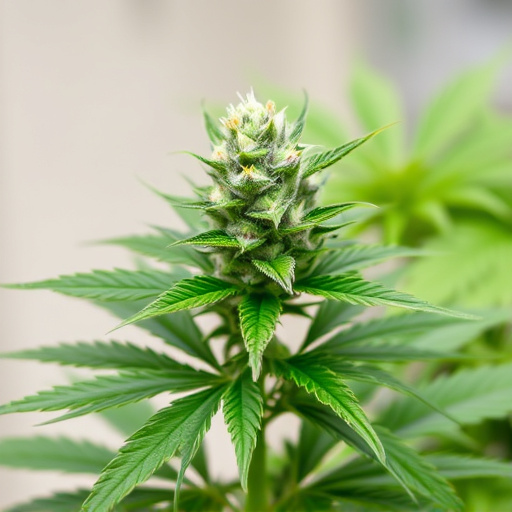
The science behind cannabis’ impact on hunger is a complex interplay of various compounds and receptors in the body, going beyond just THC (tetrahydrocannabinol) and CBD (cannabidiol). Cannabis contains hundreds of chemical compounds known as cannabinoids, each with its unique effects. Among these, THC is well-known for its psychoactive properties, but it also stimulates the appetite by interacting with specific receptors in the brain and gut.
Beyond THC, other cannabinoids like CBG (cannabigerol) have been linked to reduced hunger and increased satiety. Research suggests that CBG may inhibit ghrelin, a hormone responsible for stimulating appetite. Additionally, cannabis strains known for their high CBD content can also influence hunger levels. While CBD doesn’t directly affect hunger, it interacts with the endocannabinoid system, potentially modulating the effects of other cannabinoids and influencing eating behaviors as a result. For individuals seeking natural ways to manage hunger related to conditions like ADHD, exploring specific cannabis strains with higher CBG or balanced THC-CBD profiles could offer potential benefits.
Cannabis’ ability to stimulate appetite is well-documented, particularly in the context of conditions like ADHD where individuals often experience challenges with hunger. While THC and CBD are commonly associated with this effect, recent research highlights that other cannabinoids also play a role. Exploring specific cannabis strains for ADHD could offer a natural solution for managing appetite regulation, providing relief for those struggling with these issues. Understanding the complex interaction between cannabinoids and the endocannabinoid system paves the way for further exploration of cannabis-based therapies in various medical applications.

